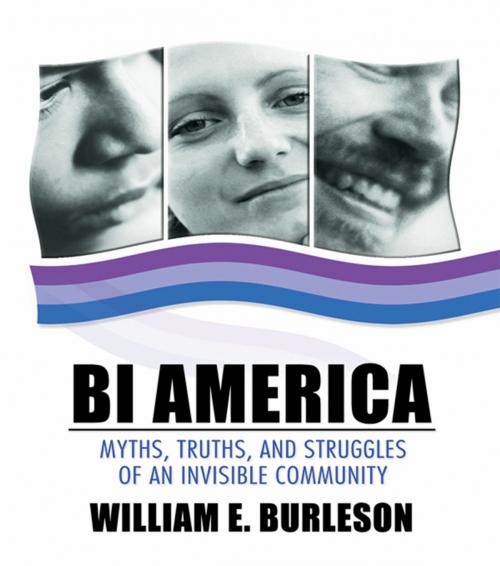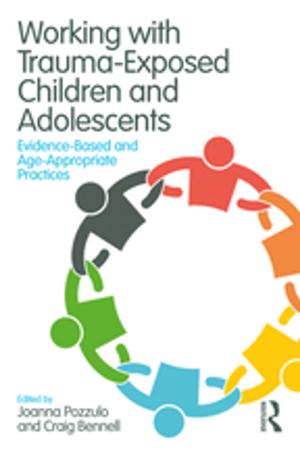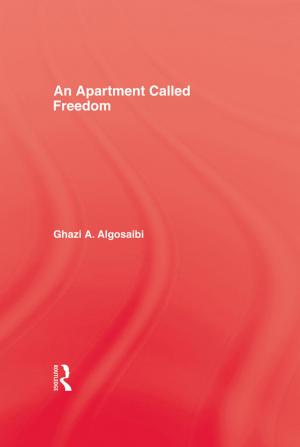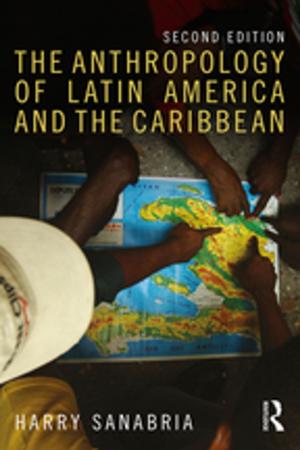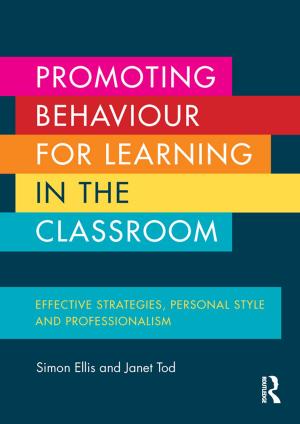Bi America
Myths, Truths, and Struggles of an Invisible Community
Nonfiction, Social & Cultural Studies, Social Science, Gender Studies, Gay Studies, Sociology| Author: | William Burleson | ISBN: | 9781317712602 |
| Publisher: | Taylor and Francis | Publication: | April 4, 2014 |
| Imprint: | Routledge | Language: | English |
| Author: | William Burleson |
| ISBN: | 9781317712602 |
| Publisher: | Taylor and Francis |
| Publication: | April 4, 2014 |
| Imprint: | Routledge |
| Language: | English |
Gain an in-depth understanding of the unique struggles of the bisexual community!
To me the gay and straight worlds are exactly the same; equally limited, judgmental, and bourgeois . . . just mirror images of each other. I truly like and overlap with some of the gay world, but my roots refuse to take hold there and grow. Unfortunately, my well-established roots in the straight world are simultaneously shriveling and dying too, leaving me feeling extremely unstable.
-Cool, a bisexual woman involved in a support group
There are at least five million bisexual people in America, generally invisible to straight society, the gay community, and even to each other. While the vast majority of these five million live within the straight or gay world, there are a few who have formed a community of their own. Bi America: Myths, Truths, and Struggles of an Invisible Community offers an inside look at the American bisexual community and gives an understanding of the special circumstances unique to being bisexual. The book takes the reader to bi community events from picnics, to conferences, to support groups, to performances in order to expose the everyday trials of the bisexual community.
Bi America includes very personal stories that let the voice of everyday bisexuals be heard through interviews, the Bisexual History Project, in which ten bisexual people tell their life stories, and the Online Support Group, a group of about 75 people who meet in cyberspace to talk about their lives and challenges. The book also includes the findings of a 2002 survey of about 300 bisexual people conducted via the Internet, an appendix that offers a concise list of resources for further study and personal enrichment, and an unabridged transcript of the Bisexual History Project.
Get the answers to these questions in Bi America:
-
What is bisexuality?
-
Is there a bisexual community?
-
What is the culture of the bisexual community?
-
What are commonalities and differences between the experiences of bi men and bi women?
-
What is the special relationship between the bisexual and the transgender community?
-
How have bisexuals and the bi community been affected by HIV/AIDS?
-
What is the future of bisexual activism, if any?
-
and many more!
Bi America is a fascinating resource that exposes the challenges, struggles, and triumphs of bisexuals in America. Bisexuals, especially those newly coming out, can use this book to help understand their identity, and family members and friends seeking some insight into the unique circumstances faced by their loved ones will also find it helpful. This book will interest those concerned with the sociology of deviance or with subcultures in general. It is also appropriate for undergraduate sociology and cultural anthropology, as well as feminist studies and LGBT studies classes. This book offers one of the few accessible, nonacademic looks at this unique and interesting community. Visit the book's Web site at http://www.bi101.org
Gain an in-depth understanding of the unique struggles of the bisexual community!
To me the gay and straight worlds are exactly the same; equally limited, judgmental, and bourgeois . . . just mirror images of each other. I truly like and overlap with some of the gay world, but my roots refuse to take hold there and grow. Unfortunately, my well-established roots in the straight world are simultaneously shriveling and dying too, leaving me feeling extremely unstable.
-Cool, a bisexual woman involved in a support group
There are at least five million bisexual people in America, generally invisible to straight society, the gay community, and even to each other. While the vast majority of these five million live within the straight or gay world, there are a few who have formed a community of their own. Bi America: Myths, Truths, and Struggles of an Invisible Community offers an inside look at the American bisexual community and gives an understanding of the special circumstances unique to being bisexual. The book takes the reader to bi community events from picnics, to conferences, to support groups, to performances in order to expose the everyday trials of the bisexual community.
Bi America includes very personal stories that let the voice of everyday bisexuals be heard through interviews, the Bisexual History Project, in which ten bisexual people tell their life stories, and the Online Support Group, a group of about 75 people who meet in cyberspace to talk about their lives and challenges. The book also includes the findings of a 2002 survey of about 300 bisexual people conducted via the Internet, an appendix that offers a concise list of resources for further study and personal enrichment, and an unabridged transcript of the Bisexual History Project.
Get the answers to these questions in Bi America:
-
What is bisexuality?
-
Is there a bisexual community?
-
What is the culture of the bisexual community?
-
What are commonalities and differences between the experiences of bi men and bi women?
-
What is the special relationship between the bisexual and the transgender community?
-
How have bisexuals and the bi community been affected by HIV/AIDS?
-
What is the future of bisexual activism, if any?
-
and many more!
Bi America is a fascinating resource that exposes the challenges, struggles, and triumphs of bisexuals in America. Bisexuals, especially those newly coming out, can use this book to help understand their identity, and family members and friends seeking some insight into the unique circumstances faced by their loved ones will also find it helpful. This book will interest those concerned with the sociology of deviance or with subcultures in general. It is also appropriate for undergraduate sociology and cultural anthropology, as well as feminist studies and LGBT studies classes. This book offers one of the few accessible, nonacademic looks at this unique and interesting community. Visit the book's Web site at http://www.bi101.org
